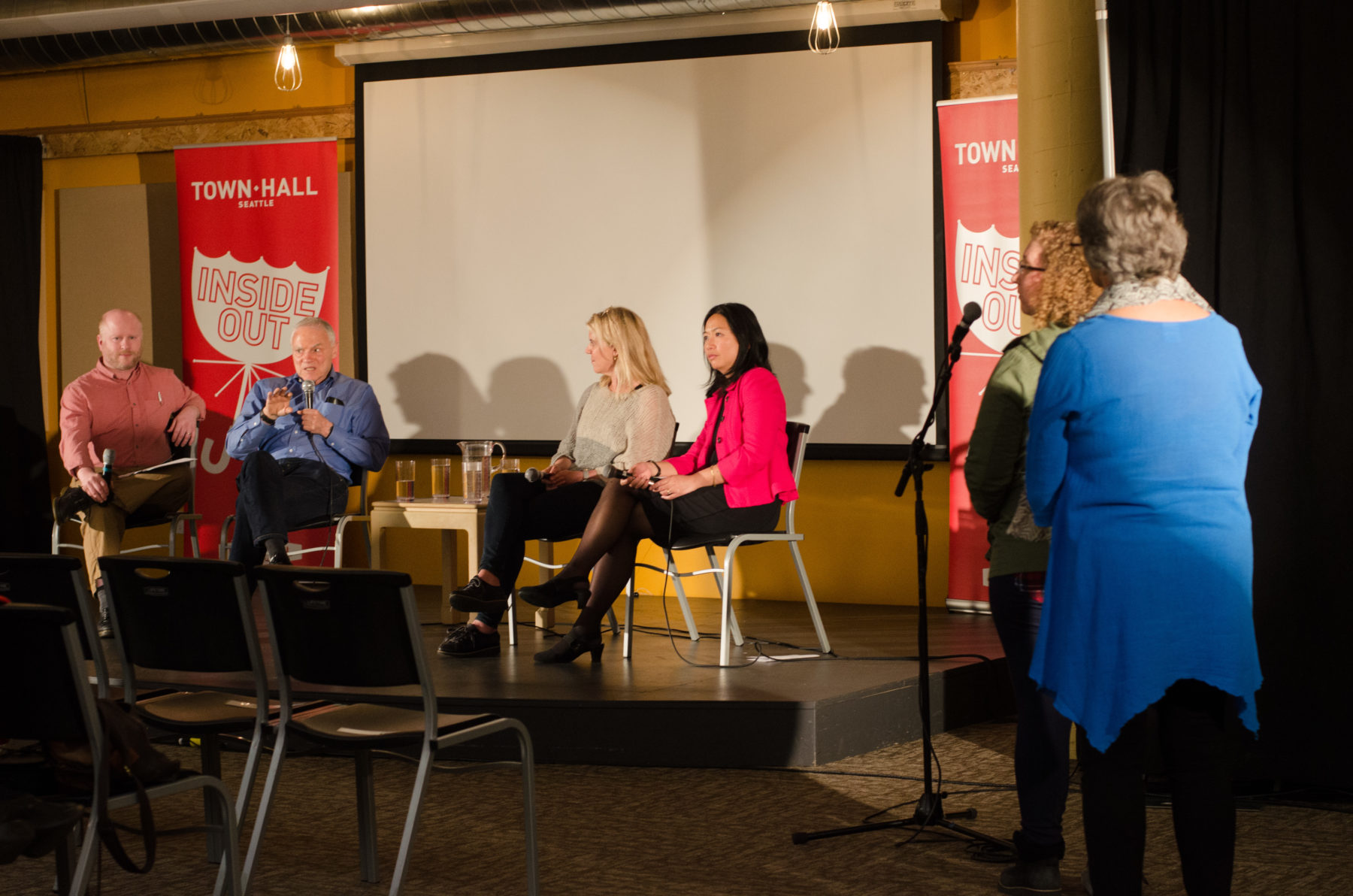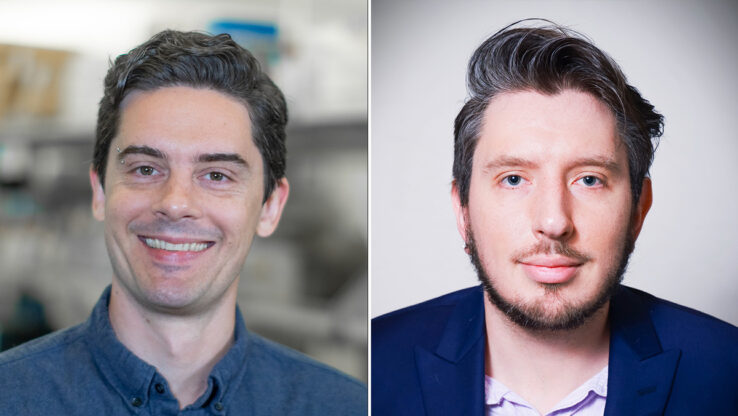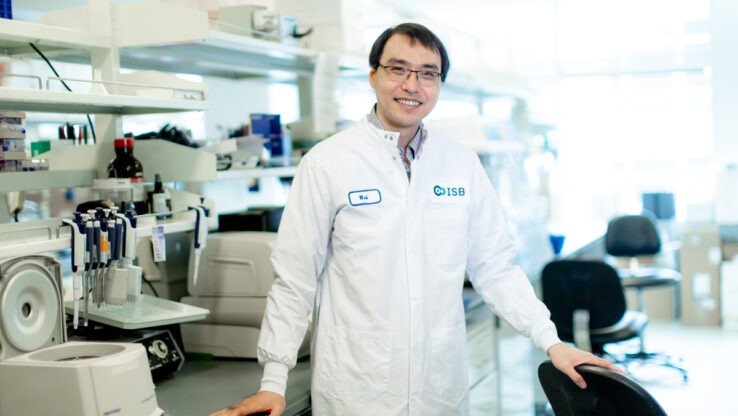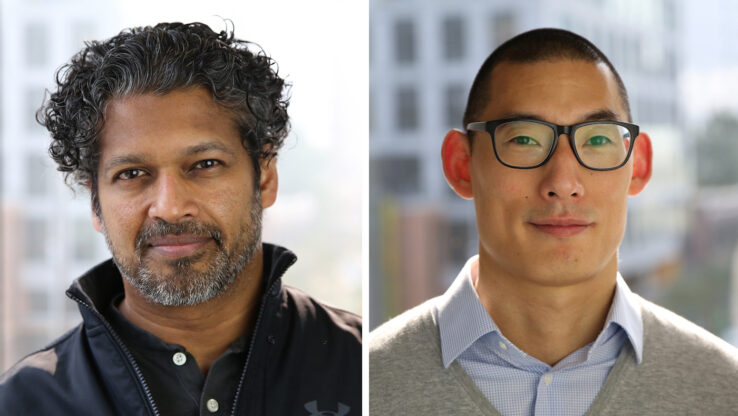Expert Panel Discusses 21st Century Health Care Ahead of ISB’s Future of Health Symposium
 isbscience.org/news/2019/04/03/expert-panel-discusses-21st-century-health-care-ahead-of-isbs-future-of-health-symposium/
isbscience.org/news/2019/04/03/expert-panel-discusses-21st-century-health-care-ahead-of-isbs-future-of-health-symposium/
From left to right, moderator Gabriel Spitzer and panelists Lee Hood, Amy Compton-Phillips and Tala de los Santos. (Photo by Harini Krishnamurthy / Town Hall Seattle)
LISTEN: Audio of Town Hall Seattle’s Future of Health panel discussion
In order to optimize our health, live into our 90s and effectively deal with chronic diseases, Dr. Lee Hood says we need to adopt 21st century health care.
Hood was speaking to an audience of 75 people Monday night at a Town Hall Seattle panel discussion focusing on the future of health. 21st century health care, he said, will optimize patient health; identify transitions from health to disease and reverse them, and protect patients from chronic disease; lead to a striking decrease in health care costs; and transform health care from a focus on disease to wellness. “Health care should be preventive, predictive, personalized and participatory, or what we call P4,” said Hood, a scientific pioneer and the father of P4 medicine.
Providence St. Joseph Health (PSJH) Chief Clinical Officer Dr. Amy Compton-Phillips and PATH’s Program Leader of Diagnostics Tala de los Santos joined Hood for a 90-minute panel discussion.
The event was moderated by Gabriel Spitzer, host of the radio program “Sound Effect” on Seattle’s KNKX. The event is the public-facing precursor of ISB’s annual Future of Health Symposium, taking place April 8 and 9.
Compton-Phillips joined PSJH in 2015 with the personal goal of making great health and care available to everyone. Compton-Phillips said the “fix me” care of Health Care 1.0 has been replaced by Health Care 1.5, which embraces telehealth, video health, and is “moving away from brick and mortar and moving out to where people live, work and play.”
LISTEN: Audio of Town Hall Seattle’s Future of Health panel discussion
The ultimate goal PSJH is working toward, she said, is Health Care 2.0, which decouples health and health care from giant medical centers. “How do we make sure what you have is in your hands to keep you healthy? How do we make sure you have actionable information and have someone to help you do what you need to do to make things better?” she asked. “We think it’s a way to bring comprehensive care to everyone around the U.S.”
PATH’s de los Santos designs, develops, evaluates and deploys innovative diagnostic technologies around the world, and especially in low and middle income countries. “A lot of us have a narrative when we think about low income countries,” she said. “Part of that narrative may be that the connected health worker is a luxury. But for ministers of health, it’s not a luxury of the future — it’s a need now.”
The conversation centered around 21st century medicine and the future of health, but touched on a number of sub-topics, including biological age vs. chronological age, new and promising therapeutic approaches with Alzheimer’s disease, the changing landscape of health workers, the need to turn unhelpful “dark data” into “health intelligence,” artificial intelligence and machine learning, and Haven (the Amazon-Berkshire Hathaway-JPMorgan health care venture).
Each panelist discussed how health care of the future will look different from what we’ve seen throughout the 20th century, and stressed how technology will help deal with complexities, not replace doctors and nurses with robots.
“It’s physician augmentation, not replacing the health care worker,” de los Santos said.
“Health care is a right, not a privilege. It should be affordable and accessible,” Compton-Phillips said. “I really believe we can make a ‘future of health’ for everyone.”
LISTEN: Audio of Town Hall Seattle’s Future of Health panel discussion






